With the lockdown comes hunger
For the first few days after our arrival in Colombia, before anyone thought of a curfew, the streets of Santa Marta were full of life. For example, when going out to restaurants we saw lots of people working as street hawkers, street artists etc.
In Colombia, more than half of the working population works in the so-called “informal” sector. But now, with the lockdown, these people are without income from one day to the next. Most of them only have enough food in their houses for a few days. But after one week, two at the most, the curfew restrictions mean, for many of them, that they are no longer able to provide for their families. Consequently more and more houses have red cloths hanging outside their homes, indicating they are suffering and need basic food.
The homeless are also suffering, a large number are refugees from neighbouring Venezuela. More than four million have already fled from the government there. Apparently the Venezuelan crisis is responsible for the second largest migration in the world, and Colombia is the destination for more than 1.5 million. Without government aid or a family to provide some support, the curfew causes substantial problems. The closure and the cordoning off of the market area means that large sections of the population are also cut off from their main source of food, the waste from the market traders.
Tour 1 – 29th & 30th April 2020
We didn’t want to just sit back and just observe this situation. So the long distance sailors in the Marina organised themselves and set about raising funds. Initially about €350, was collected.
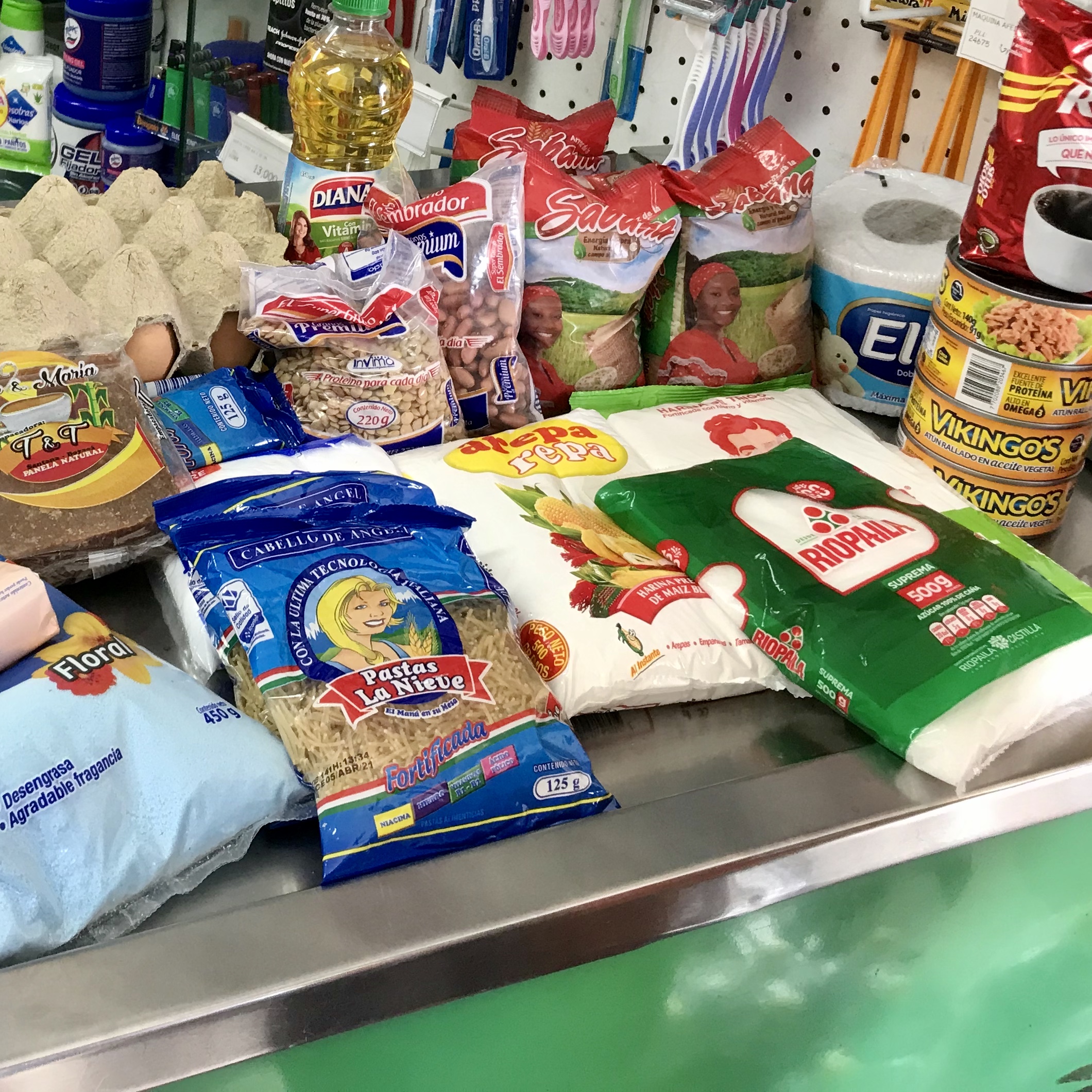 |
 |
Marlon, a German-Spanish guy living in Santa Marta, who we had met shortly after our arrival, introduced us to Alfredo and Liliam. Both of them take care of stray dogs and cats in their spare time, but they also have experience of distributing food to the needy. They made a list of basic food and hygiene items and we packed these supplies into bags for 35 families. Each bag had enough food to feed four people for about a week. After shopping, sorting and packing we went to a district with a high percentage of needy people and distributed the bags.
 |
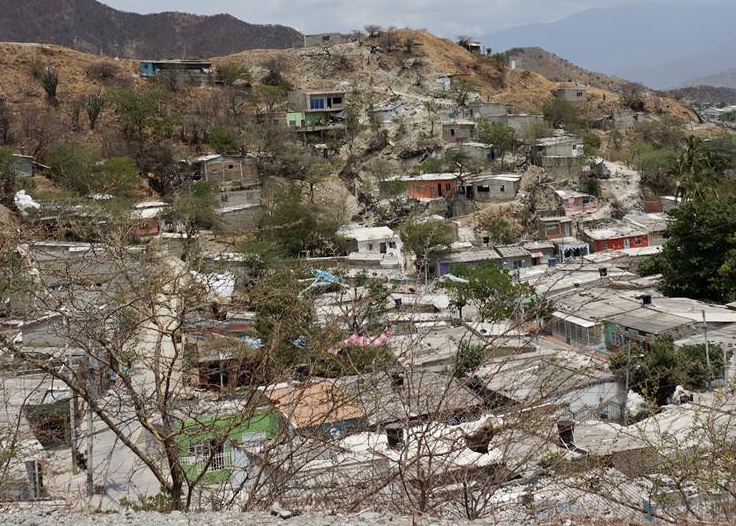 |
We concentrated on families with children and people living on the streets. When we gave out the bags, the women were particularly happy, whilst the men mostly stayed in their house or stared indifferently at their smartphones during the distribution. We also brought along some sweets, biscuits and cakes for the children. Their shiny eyes are a picture that will stay with us for a long time.
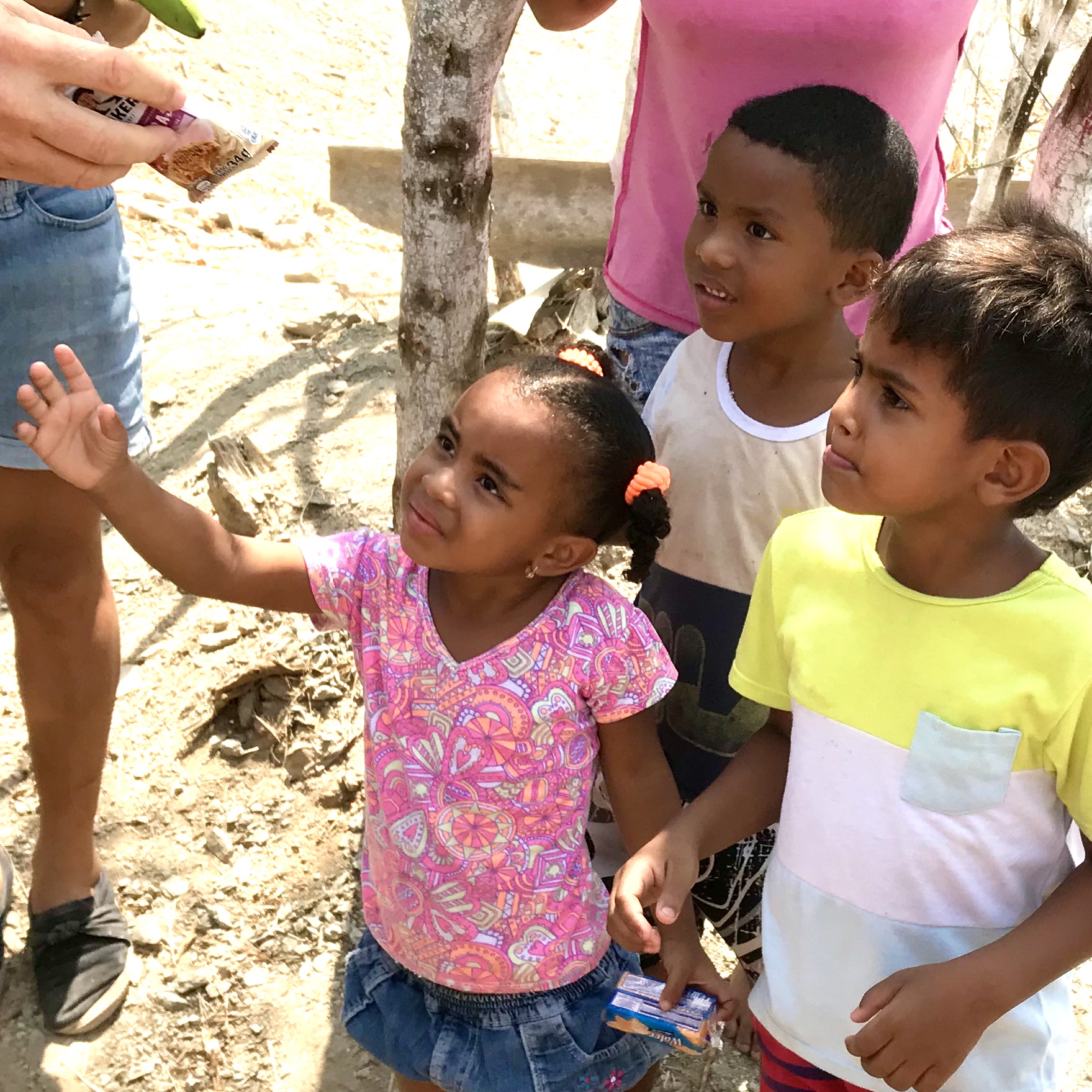 |
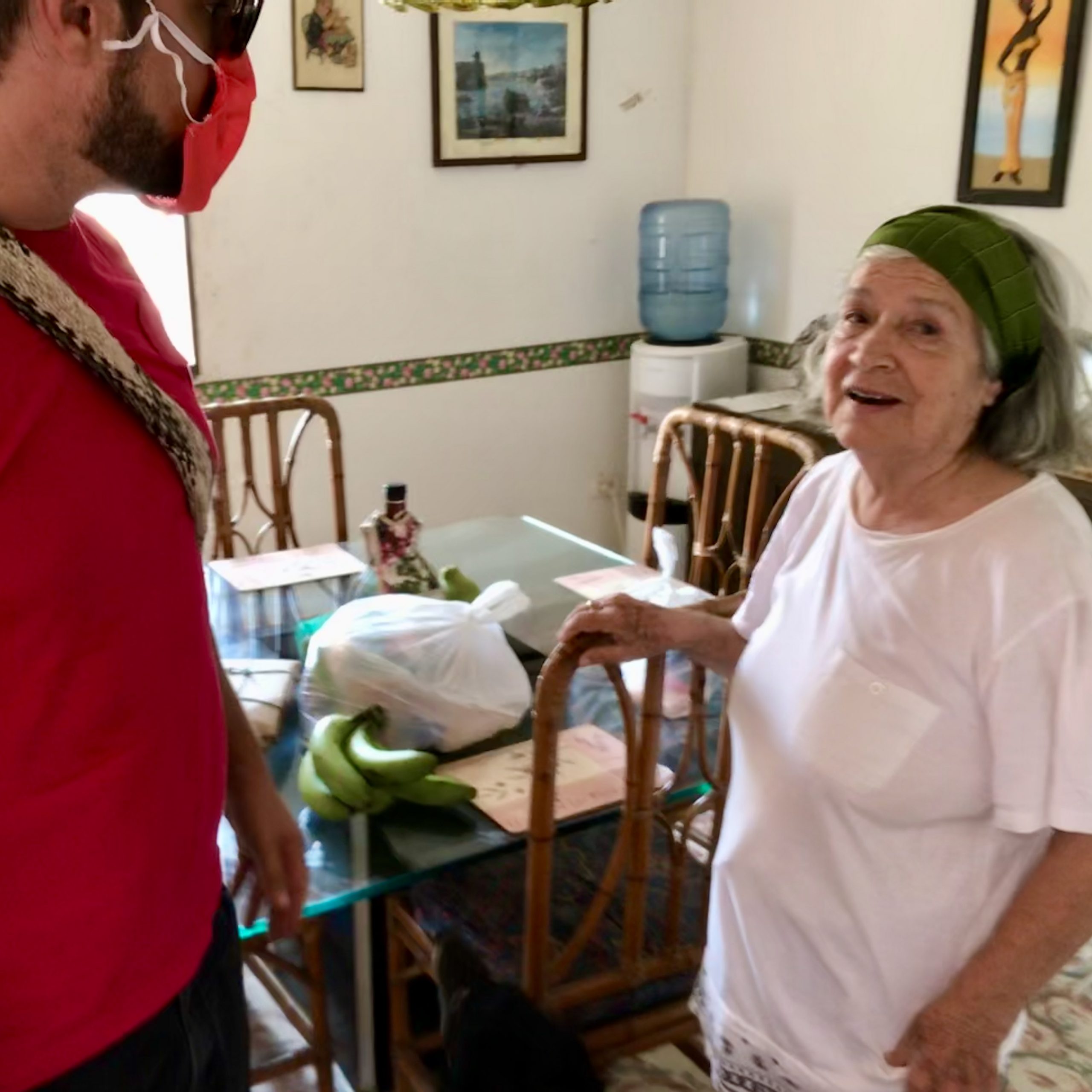 |
Later, when talking with the homeless we learnt more about their circumstances. They ranged from „newly arrived on the street because of unemployment“ to „abandoned by their family as a child“. Many of them were hiding from the police because of the curfew, which makes it even more difficult to get food to these people.
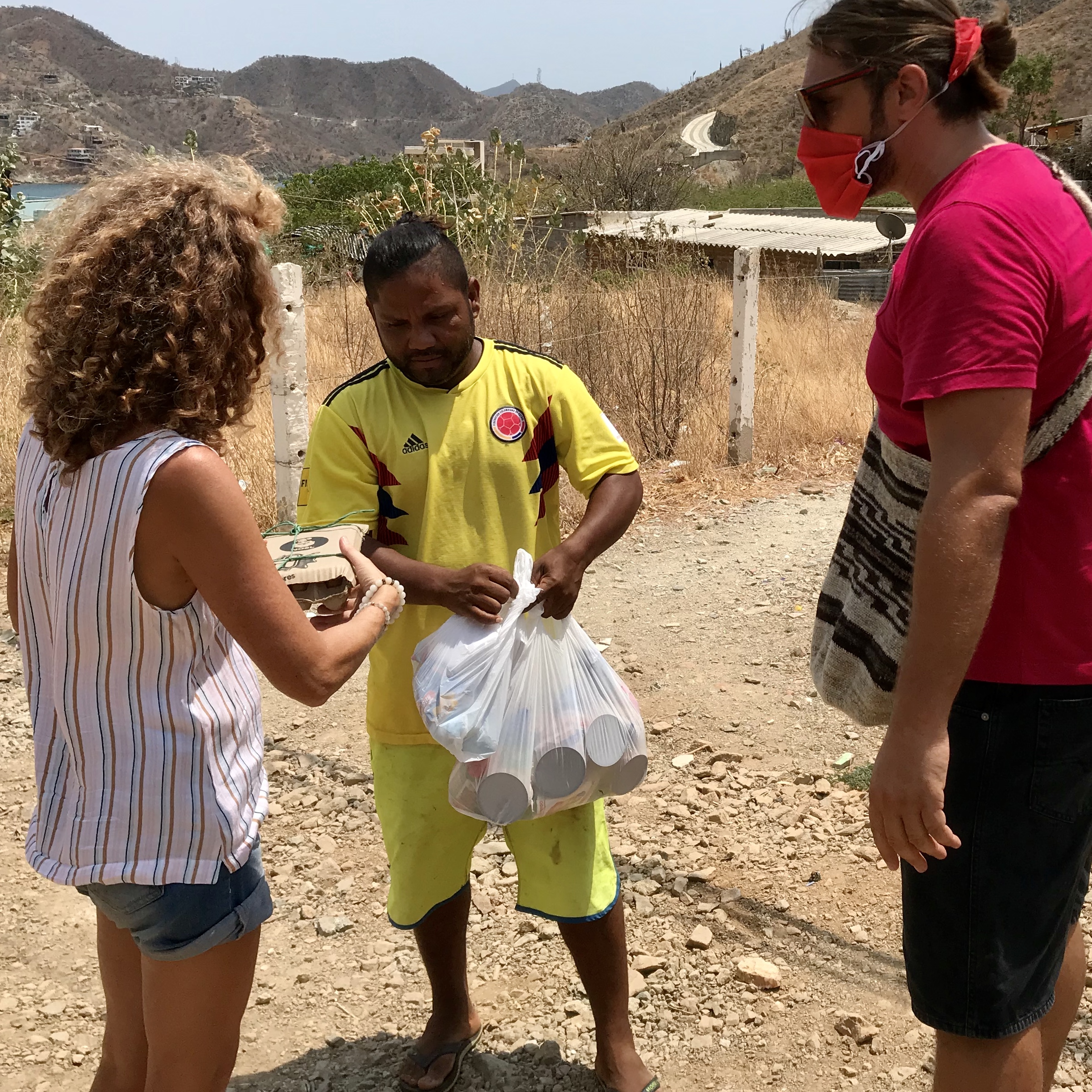 |
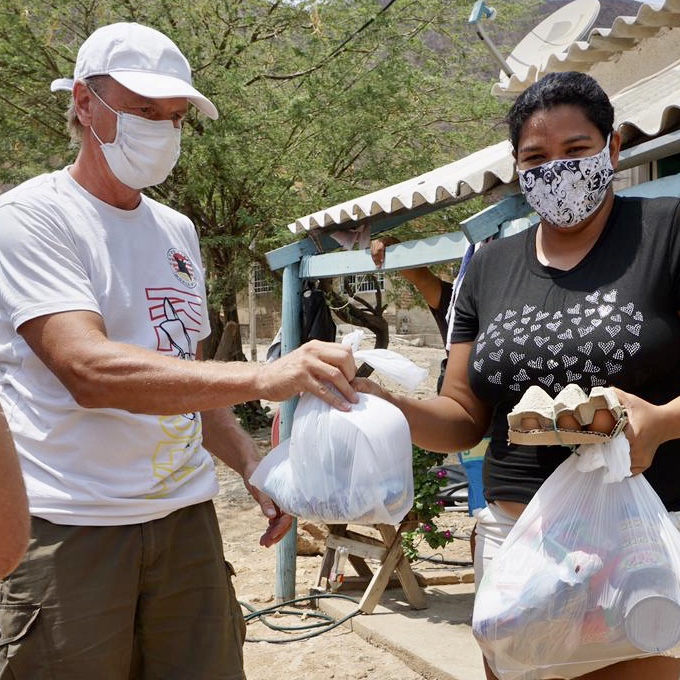 |
While we felt quite safe during the distribution activities, it did become a bit uncomfortable during our last drop that day. We stopped in front of two huts with red cloths handing outside. At first the inhabitants were quite hesitant about coming out to our car. We distributed the first bags from the open tailgate, but then more and more people came from nearby buildings. Suddenly we were surrounded by a confusing crowd. Thanks to the timely actions of our local helper, we were able to hand out the last bags in a controlled manner and then make our way home.
During that day we took pictures and posted the action on Facebook and WhatsApp to draw attention to the dire situation here. The reaction was overwhelming. Without explicitly asking for donations, we raised about €4.700, within a few days. Family, friends, neighbouring yachts – even Facebook contacts not personally known to us offered support. So a huge thank you to all people concerned!
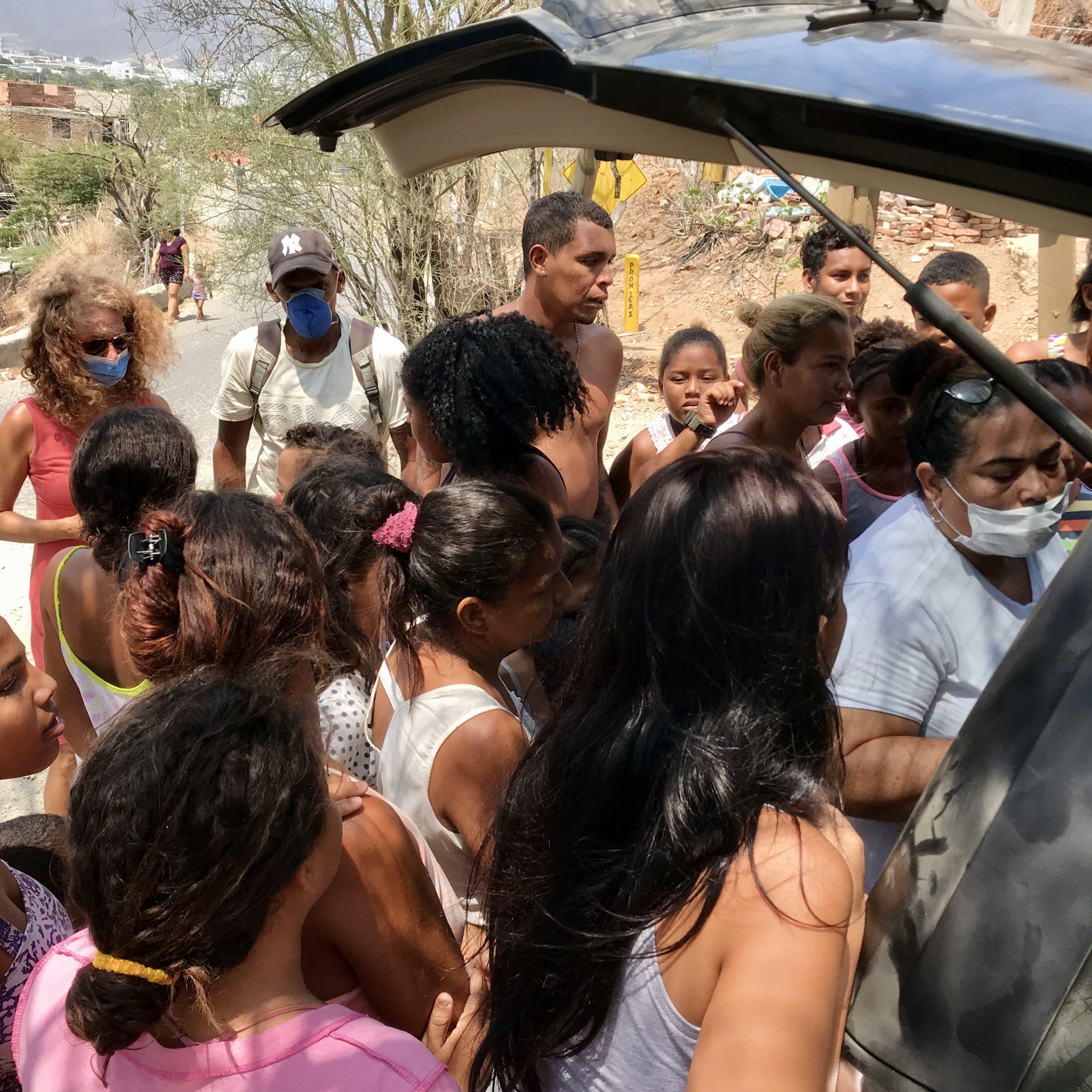 |
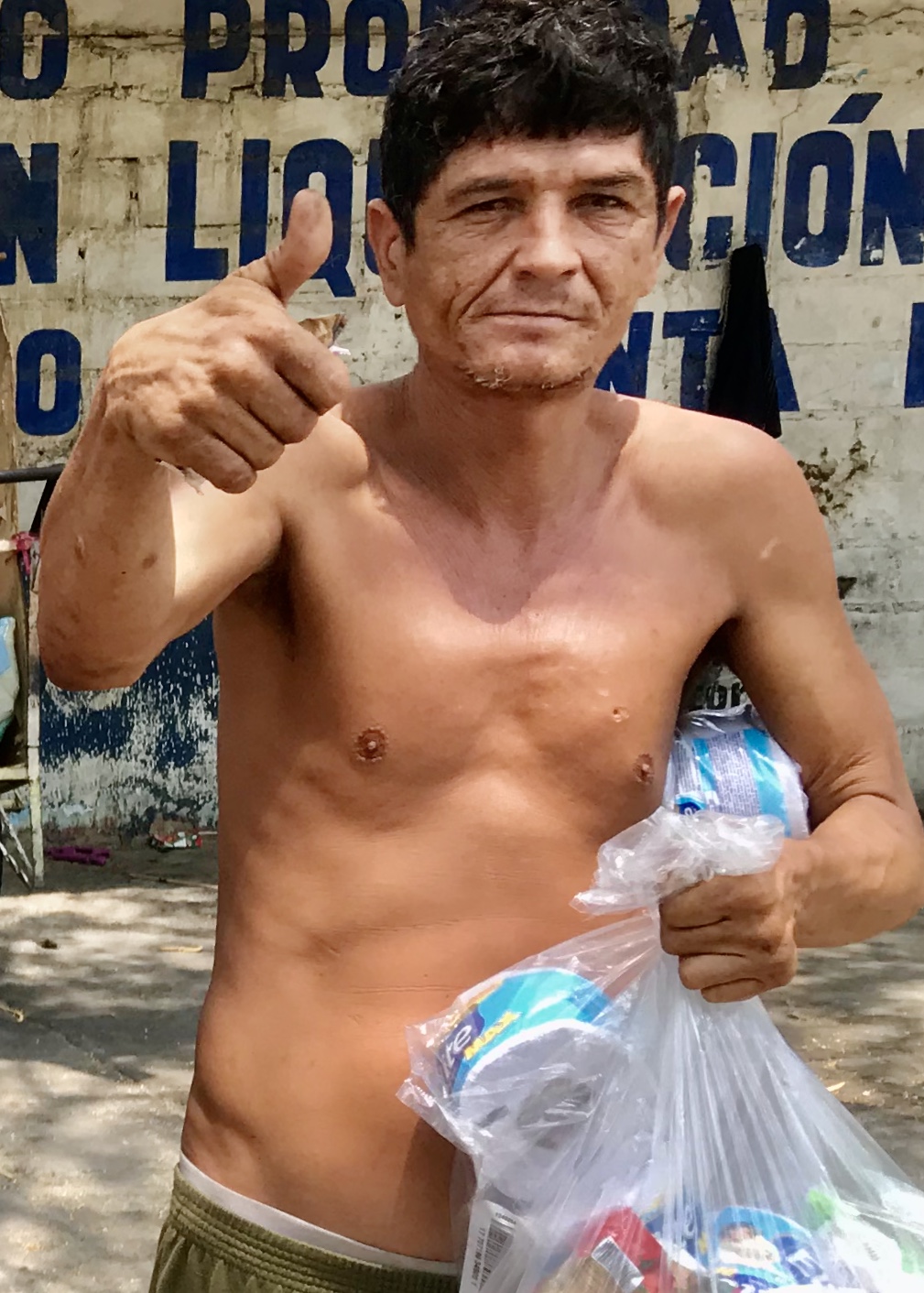 |
So now the project has been extended. The government has announced that the curfew will remain in place at least until at least 15th July. So there will still be a serious ongoing need and the opportunity for further distributions. Here are some notes from our tours…
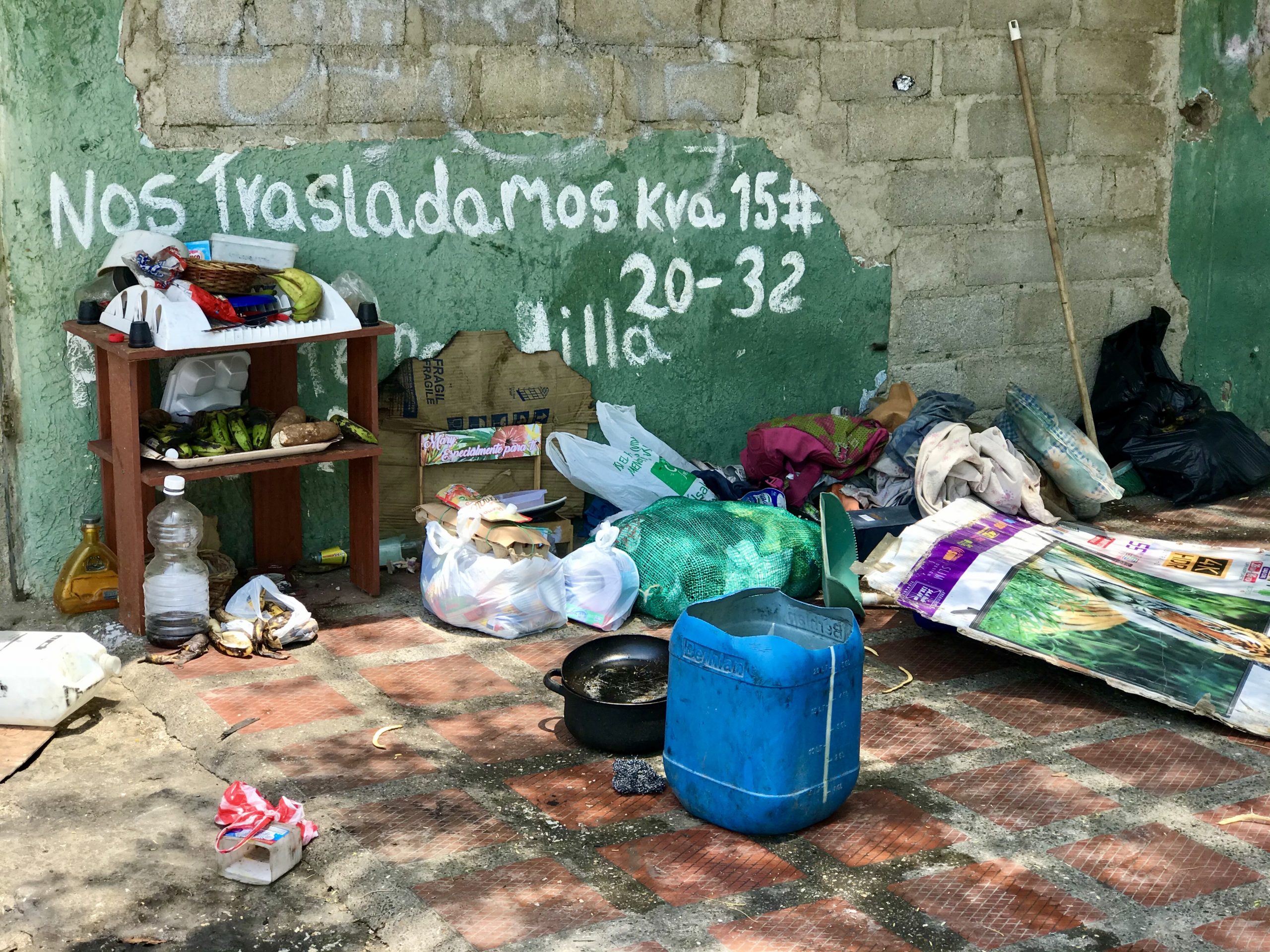 |
Tour 2 – 7th & 8th May 2020
There is also some video footage from this tour. This time we were able to hand over packages worth about €640, to 60 families.
Tour 3 – 14th & 15th May 2020
Again we put together 60 packages, with a total value of about €770.
Tour 4 – 20th May 2020 – €776
For this tour we improved our organisation systems. The goods are now purchased directly from the supermarket and delivered direct to the marina for packing and distribution. In advance our designated local helper lists the respective families and then calls over each person individually, to hand the food packages out. This makes the process much more relaxed for all involved and we were able to complete a delivery tour in one day, instead of two.
Tour 5 – 27th & 28th May 2020 €759
This took place again on two days this time, because we wanted to supply two different areas. At the first distribution point, for the first time, there was some displeasure among the people. Some of them complained that some people got something last week and others still nothing at all. This is what happens when you have to improvise, but we didn’t take it to heart, the main thing is, people are being given food. However the bad feeling still remains and of course we would like to please everybody somehow. But in view of the masses of people in need and our limited resources this is, of course, impossible. The greatest joy is always when we see obviously needy people on the way to the distribution point and stop spontaneously to give them parcels (like the family in the picture below). In the meantime the lockdown has been extended until the end of June (as we write this, there is further extension now till mid July). The donations to date are just enough until the middle of June, we will see how it goes from then on. Every sum helps (for €50, we can give 4 families food and hygiene articles to last about 1 week).
Tour 6 – 3rd June 2020 – €778
This took us initially to the north towards Palomino. At this point again a big thank you to Marlon for his assistance – from the purchase and delivery of the supplies, to the organisation of the drop off points and delivery with his car – without him we would never be able to do all this! In order to be sure that the deliveries actually arrive to the needy people, we rely on people who are personally known to Marlon. And this sometimes leads us a little further away from our marina. Shortly before the town of Palomino, Eliana, a Shamaness who lived with some indigenous people for a long time and who now passes on her healing art to others, was waiting for us. She had informed the needy families in her village about our arrival, this time the distribution was very orderly. As a special souvenir Marta, a 14-year-old Portuguese girl from our marina group, had made small bracelets for us to hand out. The indigenous children were thrilled.
The second part of Tour 6 (10th June) was delivered in Palomino. Mara, who emigrated from Germany many years ago, runs a very comfortable hotel right on the beach there and offered to help us with the distribution. The hotel business is currently closed and most of the staff have been made redundant. The lockdown is an economic catastrophe for the whole tourism industry here. But this does not change their helpfulness. The invited families were welcomed to the hotel grounds and were called on, one at a time. Whilst they were waiting Mara provided them with cool juice and delicious home made pastries. Once again, it was a good feeling to know that lots of people were being looked after.
TOUR 7 – 25th & 26th June 2020
This time we went again in the direction of Palomino. We heard that the distribution activities in the area around Santa Marta had already led to inquiries from people who we would rather not associate with, therefore we decided to distribute a little further away in the future.
On the first day we went to Eliana, who helped us on Tour 6. On the second day we went a bit further east to the village of Dibulla. We stopped at some huts where our local contact knew that needy families live there. One of them was Maria, who is over 80 years old and lives alone in a simple hut. She earns the little extra money she needs by selling mangos. She is an impressive person and even climbs up the trees with a ladder to get to the Mangos.
After this it became complicated, as we were stopped by a police unit. Unfortunately, we had left the area covered by our permission letter so the policemen told us to turn back. After a long discussion, however, it turned out that one of our team was a friend of the governor’s wife and she made a phone call. As luck would have it the governor’s wife happened to be sitting in a restaurant and had been watching the scene from the beginning. As a result of these two coincidences we were finally allowed to drive on and distribute the remaining food. We thanked our friend with a food parcel. Of course this parcel was then missing when we came to distribute the food. The faces of the empty family were so sad that I decided to give them my last Pesos.
Because of the incident with the police we had lost so much time that we almost missed the last bus back to Santa Marta (we didn’t all fit in the car). We only reached it in time because: 1. Marlon drove us there at high speed and 2. The bus was 15 minutes late.
Unfortunately, however, none of us had any money with us – I had just got rid of my last Pesos. So Mareike and I were in a Colombian bus without money, without mobile phone reception and very poor Spanish – we just hoped that everything would turn out well. And of course it did. First of all, a German who had offered us her help was sitting in the bus (by chance) and secondly, the conductor came to our row of seats, after the bus stop where Thomas got aboard. Thomas had stayed in the hotel during the distribution and knew which bus we were going to catch and luckily he had enough Pesos with him. Even so it was nerve wracking!
Since our British friends Fizzy and Jack are also doing a lot of advertising for the project, the donation box has been filled up again. They have already collected more than 1.200,- £ and thus guaranteed our next purchase. TOUR 8 – 4th July 2020 – £723 (thanks to a large contribution from friends and family in the U.K.)
This tour was to a village with members of the Wayuu, an indigenous group of people living in the border area of Colombia and Venezuela. The inhabitants of Wepiapaa (about 250 people) were expelled from their original homeland 14 years ago, like many other Wayuu. The soil here is less fertile than their old land and so they have made a sideline for themselves by producing and selling traditional bags and other handicrafts to tourists. But with the lockdown, these opportunities have disappeared and our delivery was therefore very welcome. As the Wayuu only speak a little Spanish, we had to rely on two translators this time. After the distribution they offered us a detailed village tour and we leant a lot about their everyday life. Definitely a highlight of our stay here so far!
On our way back we were again stopped by the police – twice! Thanks to the official written permission for our distribution activities we were allowed to drive on without hinderance, but it is still a scary moment every time the police wave at you to stop.
Tour 9 (July 25th/26th; 869,20 €) we again went to the Palamino region. Mara, who organised the distribution site had asked us to provide more bags of food because there were so many people in need. In order not to exceed the budget too much, we reduced the content of each bag a little and with a bit of a reorganisation and careful purchasing, we made the 60 bags stretch to 100 bags.
The distribution of the first 50 bags took place on Saturday 25th July at Mara’s property in Palamino, where she had arranged for representatives of 45 families to come to collect bags of food. We had five packages in reserve, but of course, once again, it was not enough. News of this sort activity gets around village quickly, so there are always more people queueing, than invited.
It is very depressing to send away those who haven’t been given anything. So in order not to send them away completely empty-handed, we took a few things from the second part of the delivery and Mara also found some food in her own pantry to make some “mini packs” which were gratefully received but those who came by hoping for a handout.
It is always frustrating when distributing in this way – On the one hand you know you’re doing something good by giving to those in need, on the other hand giving always means that there is never enough!
On Sunday we went to Los Achotes, a village with about 65 families, about 30 miles from Santa Marta in Colombia. The people are mainly farmers and largely self-sufficient. However there are things that they need to buy and these items are funded by the money earned from sea fishing. But as all the hotels and restaurants are now closed, due to the Covid lockdown, this source of income has dried up.
Los Archotes is not connected to the electricity grid so they need generators for electricity. The water source is the nearby river and the water has to by pumped to the village, but only when the water level is sufficient (in the rainy season) and when they have sufficient fuel for the generator.
The local chairman, Uliseys, organised this food distribution efficiently and arranged for the village inhabitants in the widely scattered houses to come to the community center near to the main road. After a short speech, his assistant/secretary read out the names of the recipients, one by one, from an impressive looking village book and a short time later our truck was empty. Afterwards we had the opportunity to visit one of the homesteads in the forest.
High up on a ridge, lives 84-year-old, Señora Bernarda, in a very simple thatched Colombian style house. Since her stroke, a few years ago, she has been supported by 67-year-old Tonio and her neighbour. We could only drive half way up to her house, we then had to walk on a rough path – partly up the river bed.
It’s a mystery how Bernarda manages this walk, but she does, when she has to! Despite her old age she seemed to be quite fit and was in the mood for all kinds of jokes. All in all, this tour was again moving and gave us an exciting insight into the life here in Colombia. However, to us (wealthy) Europeans, it seemed like another world!
Our food donation project has a small anniversary! We have now reached Tour 10 (August 18th; 828,20 €)!. At the end of April we started raising money, with a small collection in our marina of about 350,- €, mostly from stranded yachties. Since then, thanks to 74 donations, the amount raised has now reached over 10.000,- €. Once again thanks to everyone who has contributed.
The first part of this tour took us to Taganga again. Lucie Lacaf, a hotel host there, had heard about our project and asked for help. Since the lockdown most of her employees have no income. With our support they, and their families now have food for a short while. Of course this is only a short-term solution! So to help them until end of September Lucie has initiated her own fundraising campaign – all help is welcome! LINK
The next day we drove about 15 kilometres east to Bonda, a small neighbouring town close to Santa Marta. Bonda was one of the five indigenous settlements in the region when the Spanish arrived in the 16th century. Here, unlike in the coastal region, the town has become a holiday destination for Colombians. But even this type of tourism has now come to a complete halt. Hotels, guesthouses, bars, cafés, restaurants – everything is closed. For our distribution here, the owners of a closed restaurant invited needy families from the neighbourhood to come and receive our food bags.
The remaining last six bags of our 10th Tour were distributed close to the marina. A desolate shack is located in the middle of some fancy skyscrapers. About 30 people from Venezuela live there – on about 100 square meters of land. More than 1.8 million refugees from Venzuela, now live in Colombia. Most of them have no passports nor identity cards and have therefore been without income since the lockdown. Many have already returned home to Venezuela because of COVID. The majority that remain are trying to hold on somehow. After we opened the boot we were immediately surrounded by hungry, needy people. It was a bit more hectic and noisy than during our other pre-arranged distributions but still relatively orderly.
And last, but not least, we left some packages for our marina staff again. As in other tourist businesses, many of the employees have been laid off, as only a fraction of the normal turnover is being received! Juan, the Marina Manager, had already asked us for help for these redundant colleagues, that lost their jobs shortly after the lockdown started. He himself would also like to help more however the lockdown also hits the remaining employees hard, as their remuneration is largely dependent on turnover.



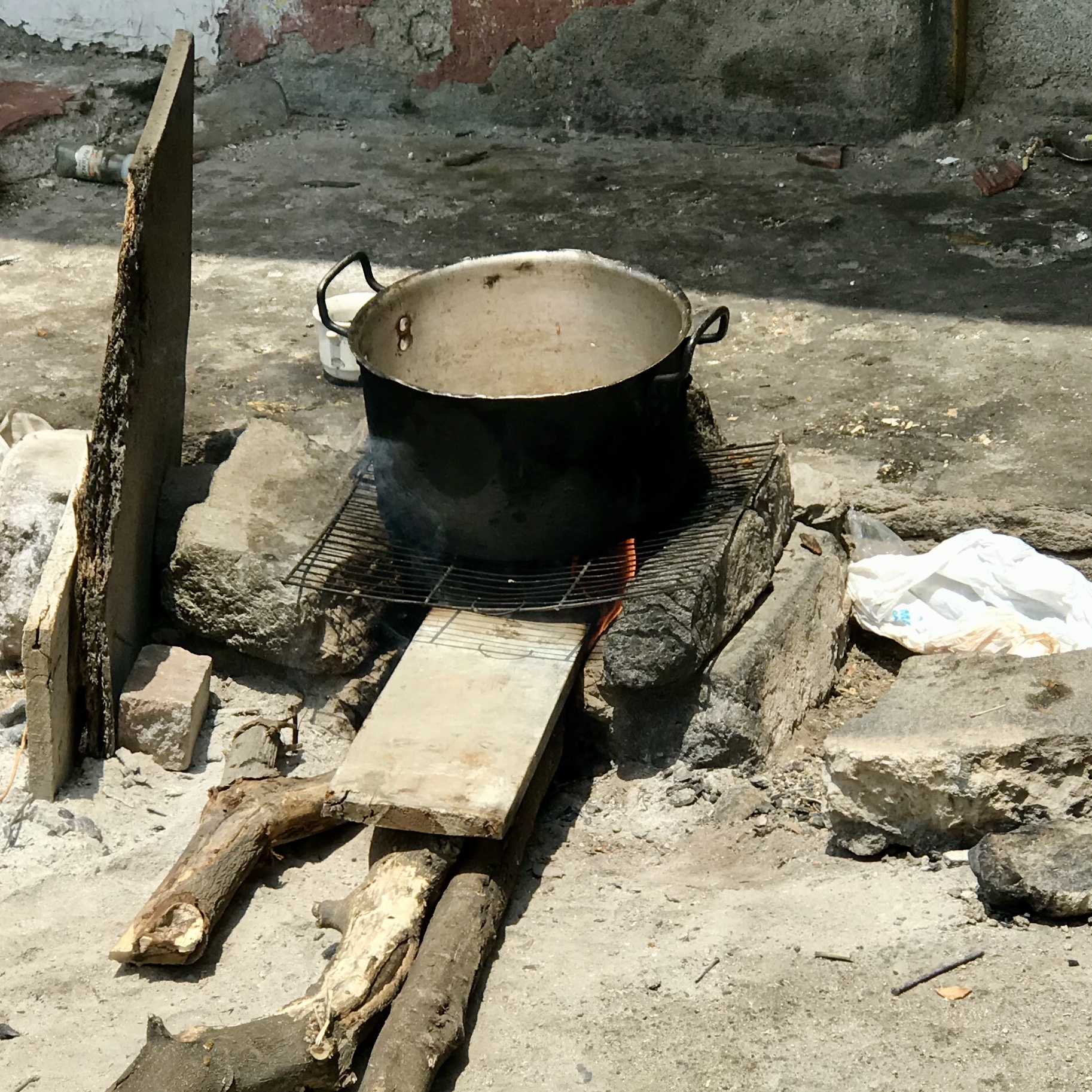
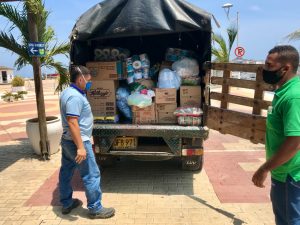
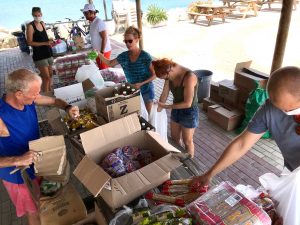
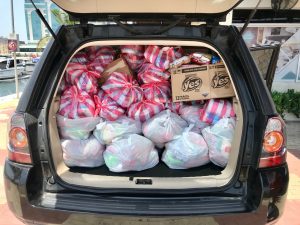
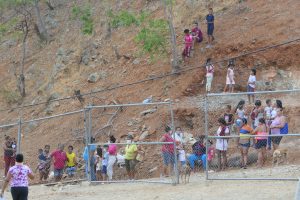
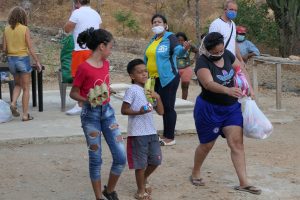
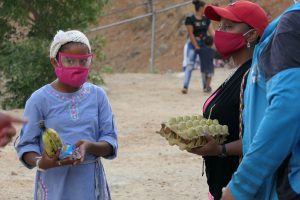




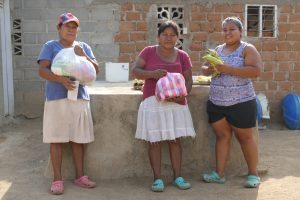



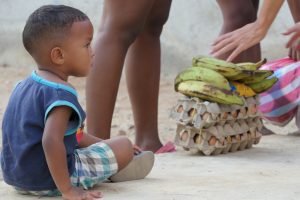
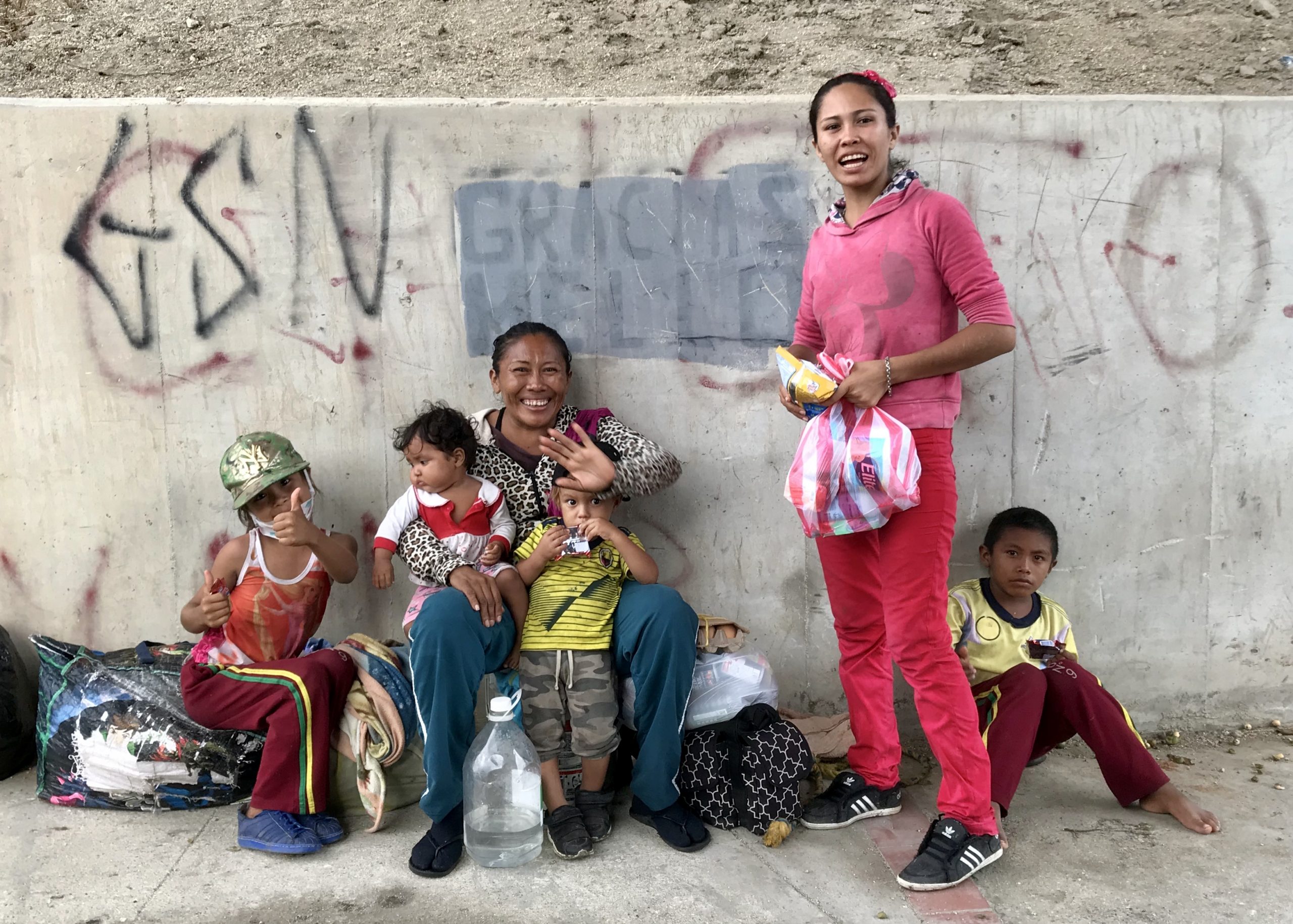
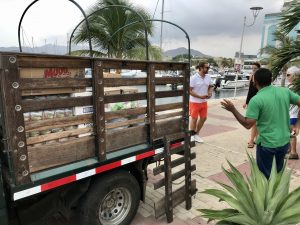
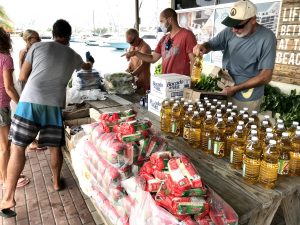
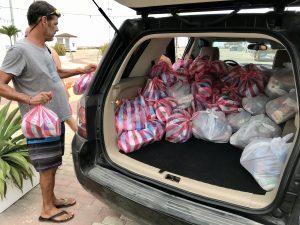
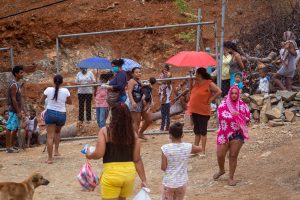
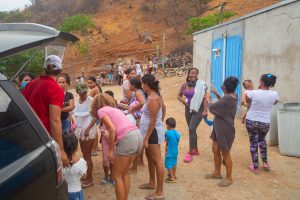
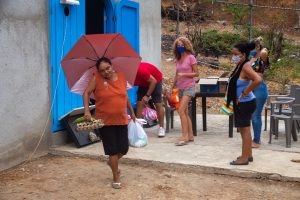
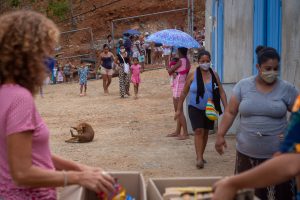
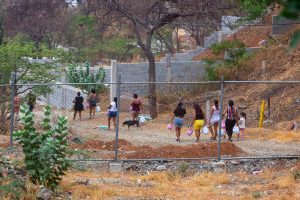
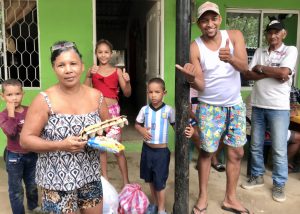
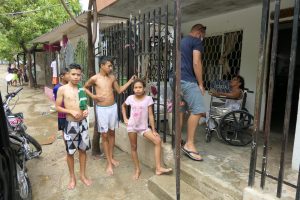
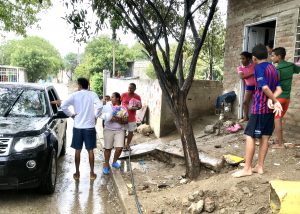
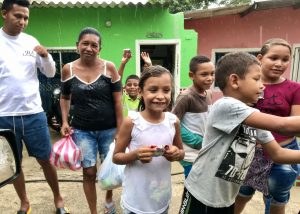
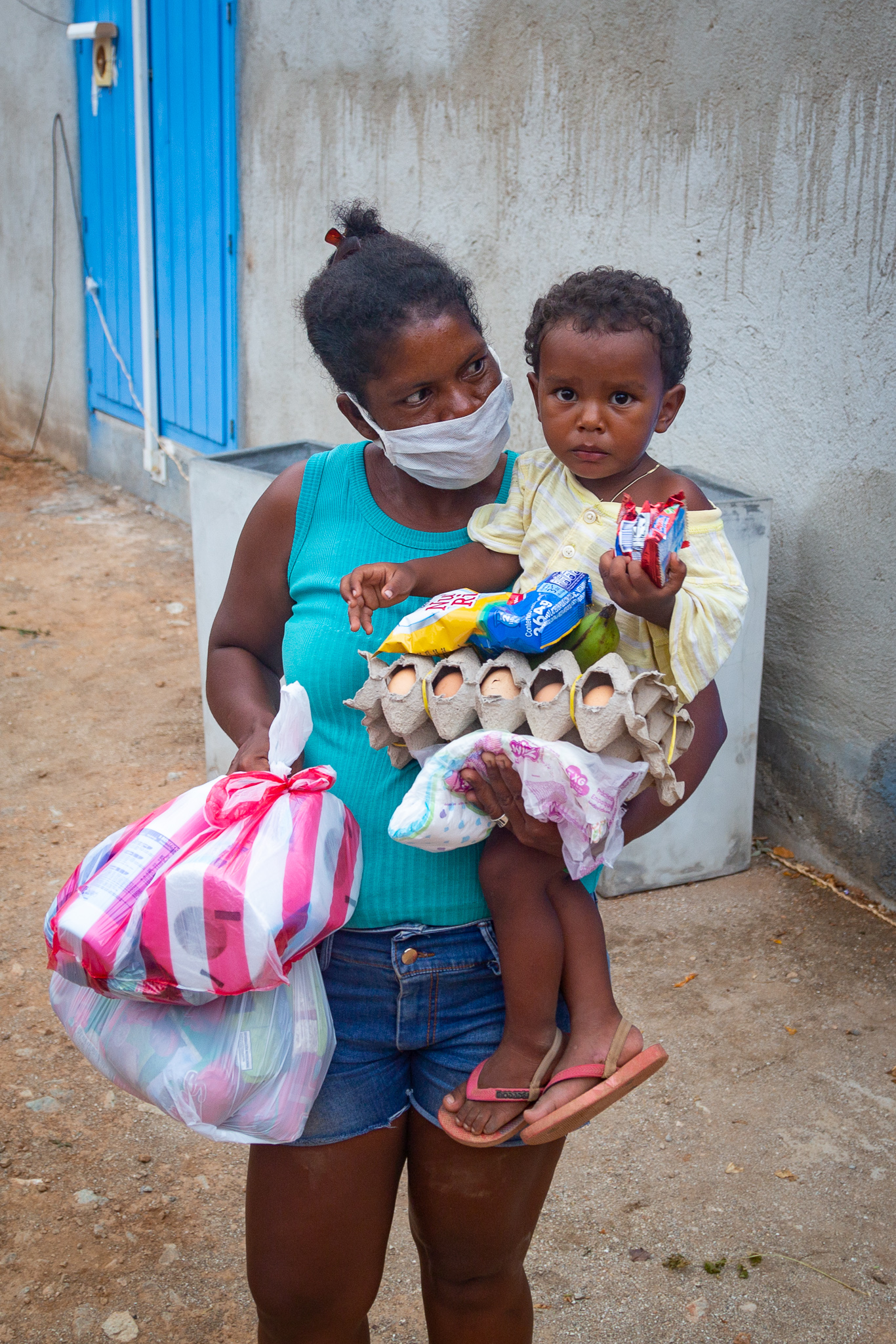
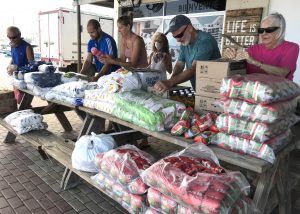
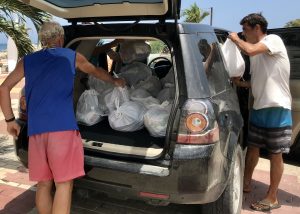
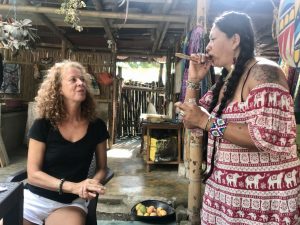
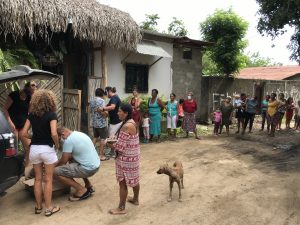
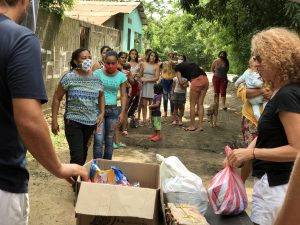
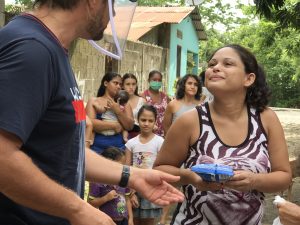
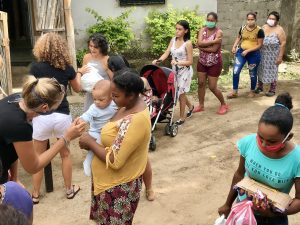
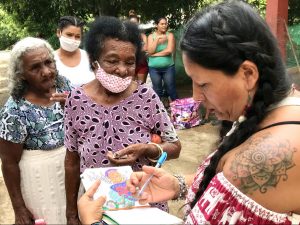
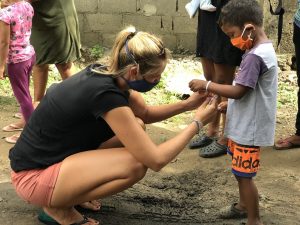
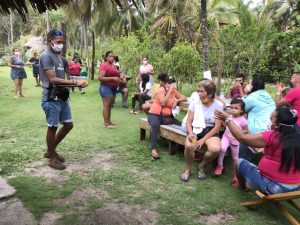
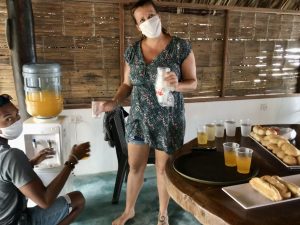
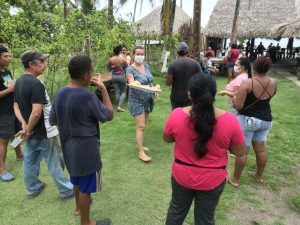
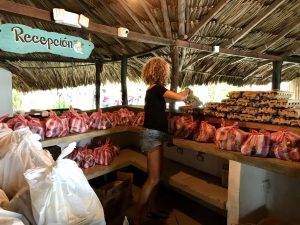
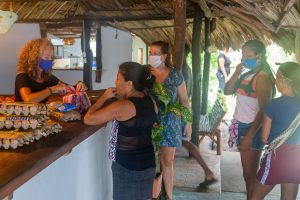
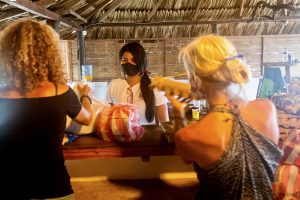
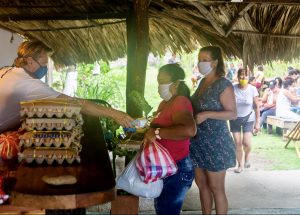
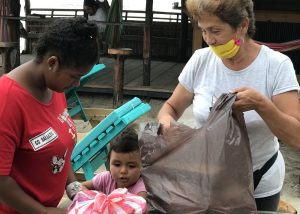
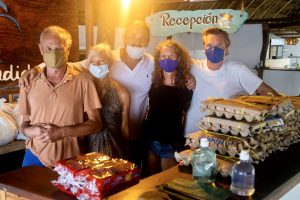
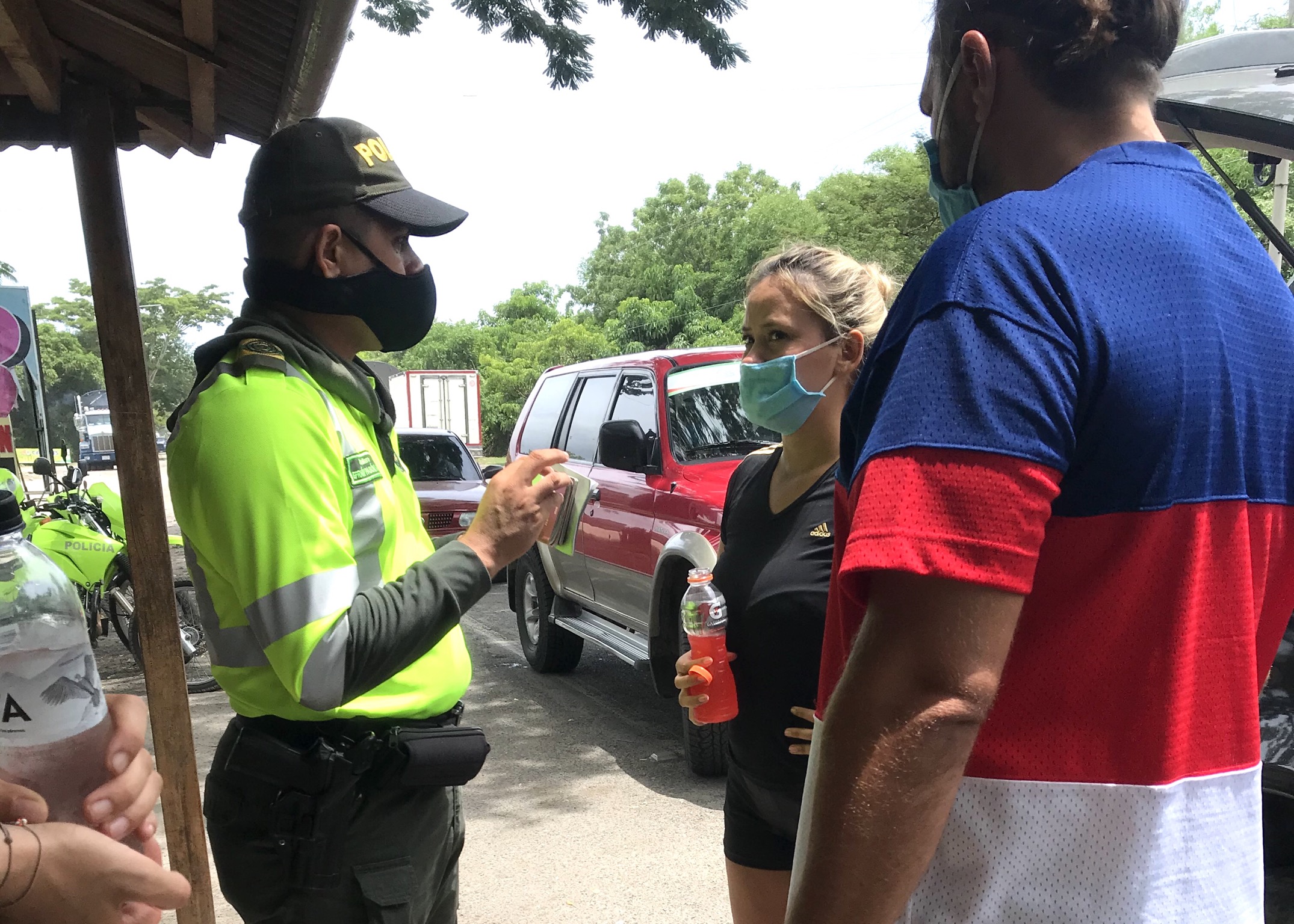
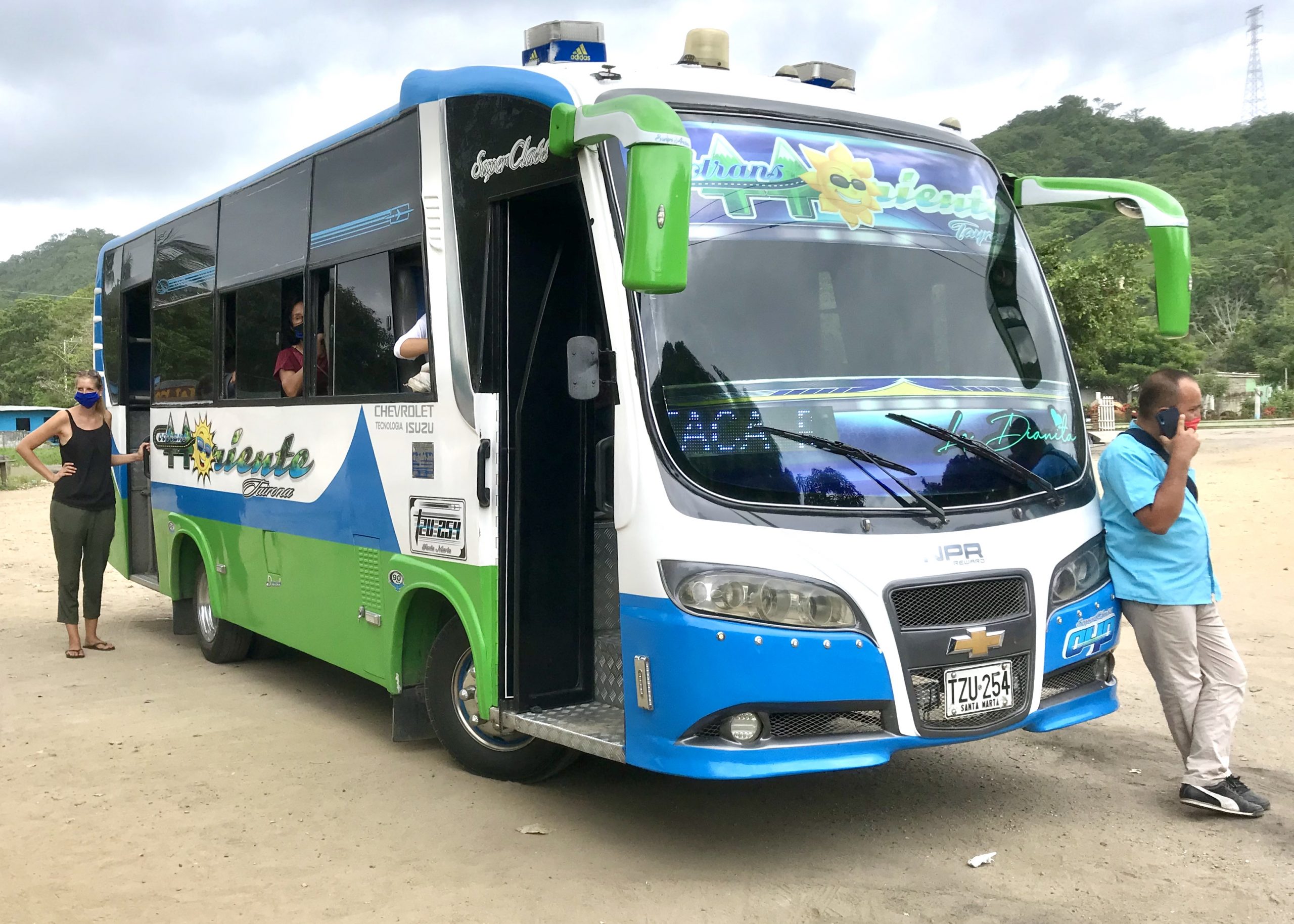
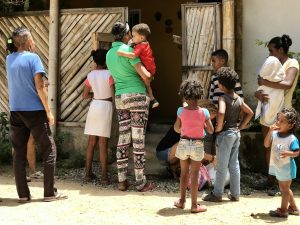
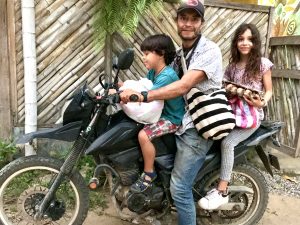
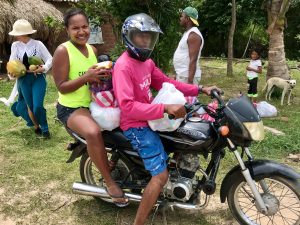
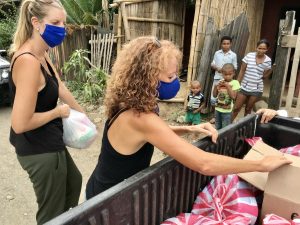
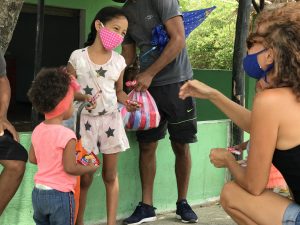
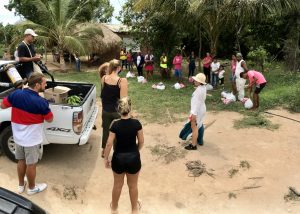
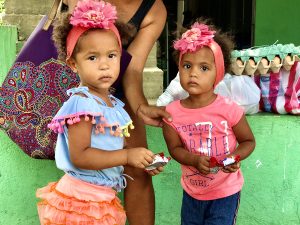
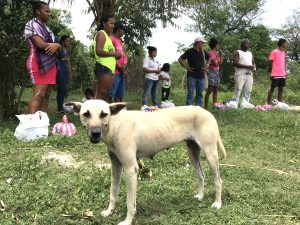
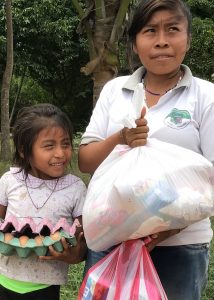
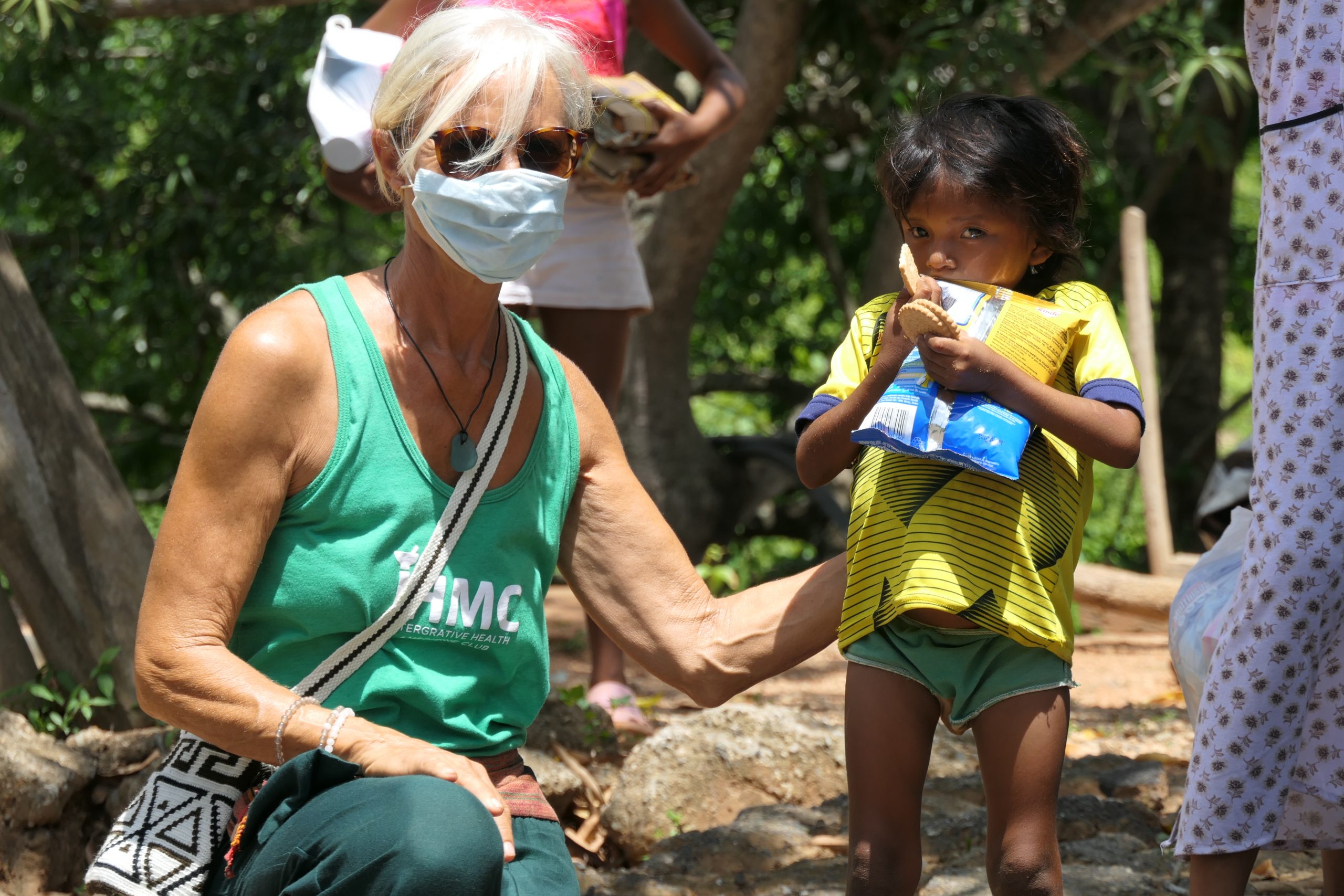
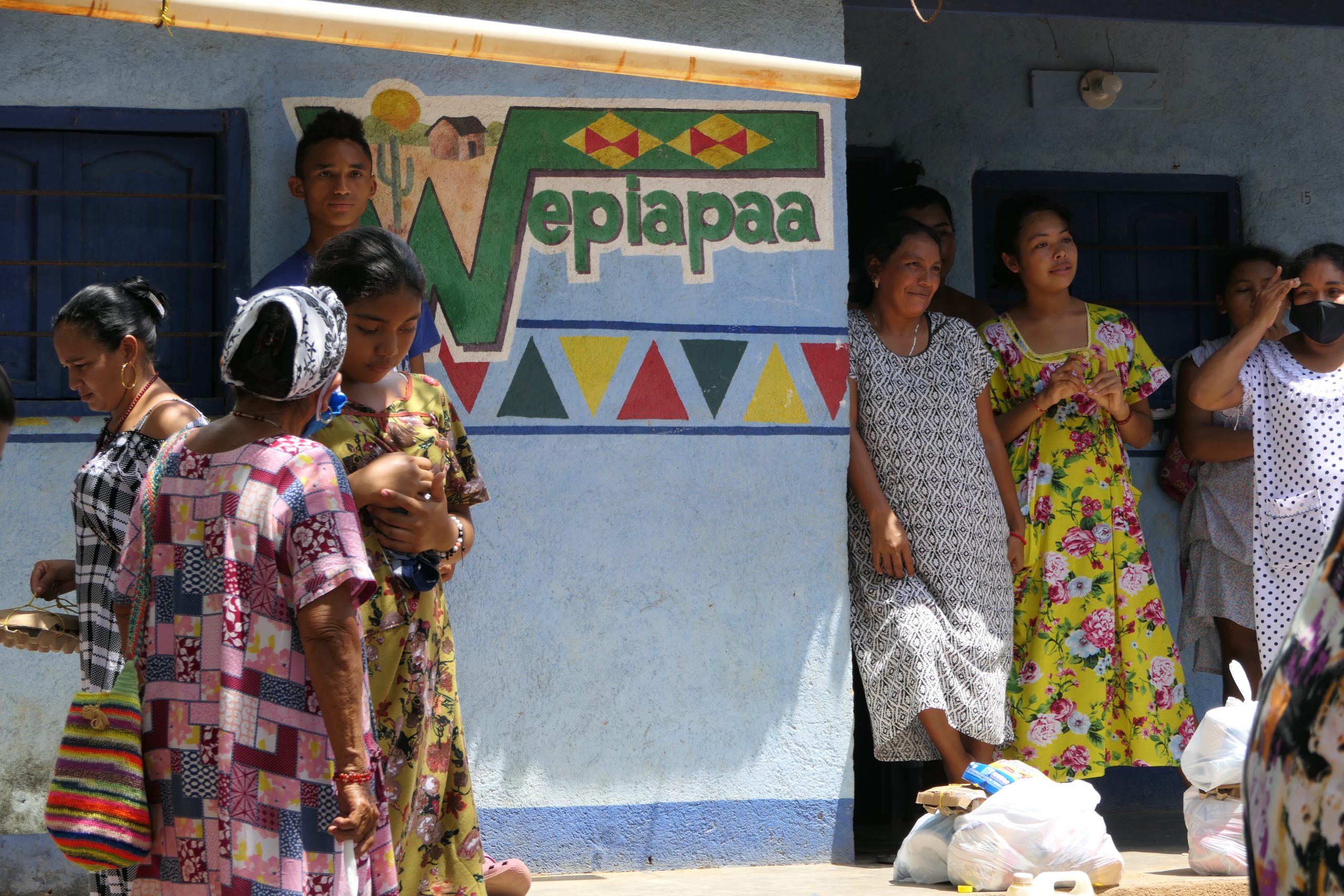















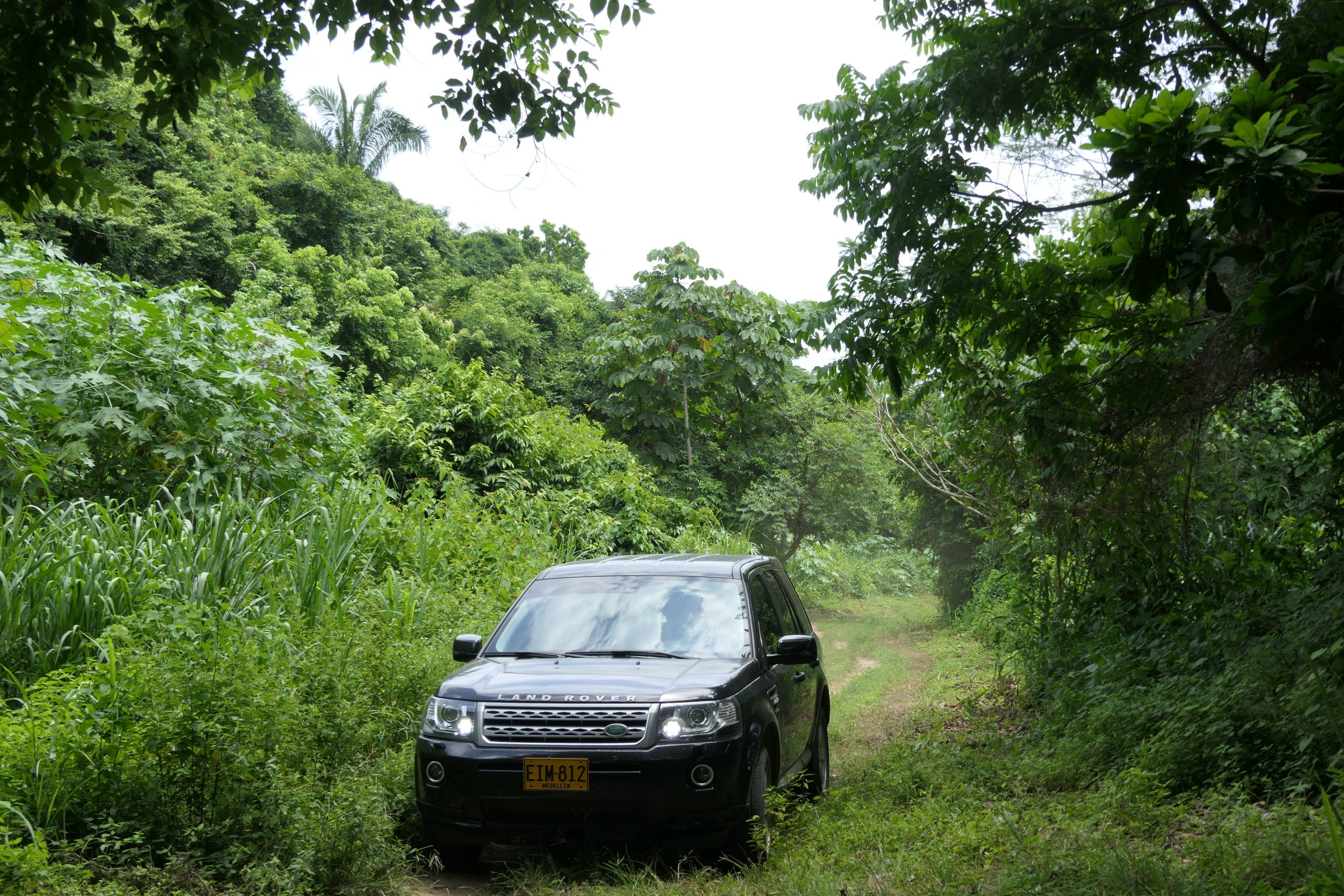
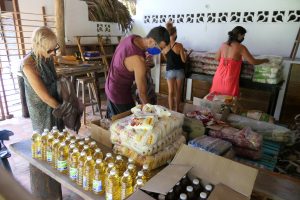
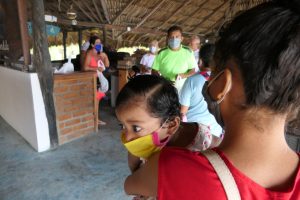
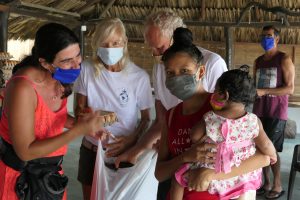
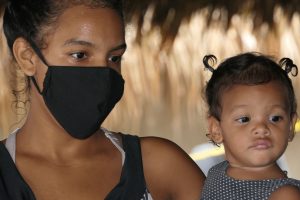
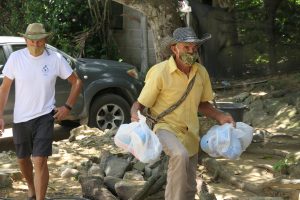
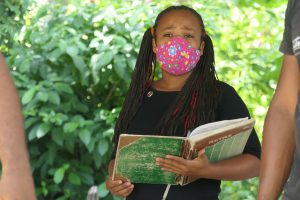
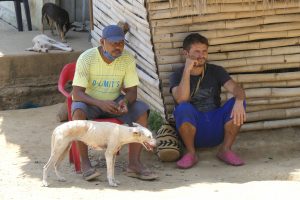
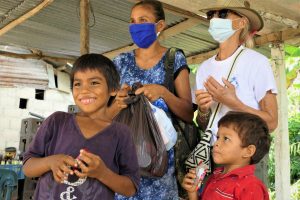
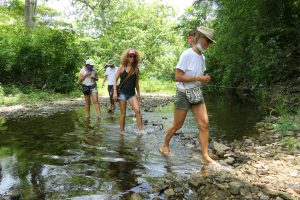
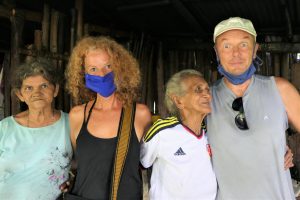
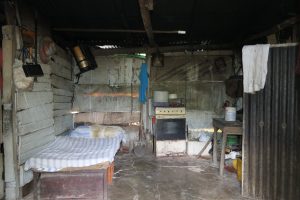
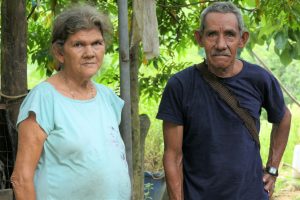
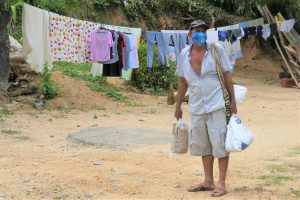
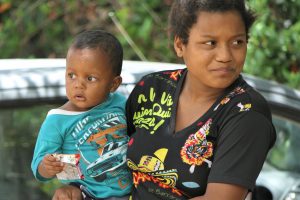
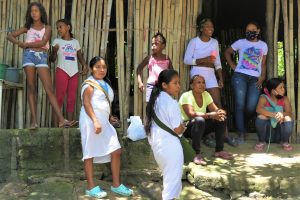
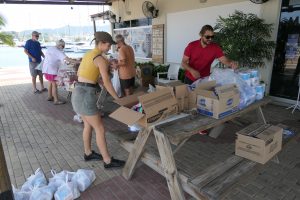
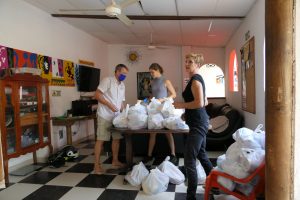
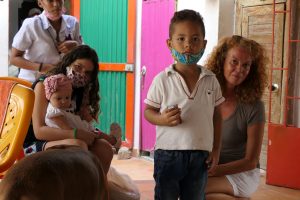
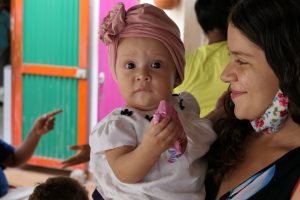
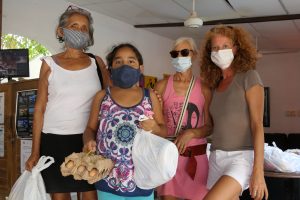
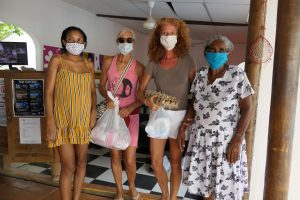
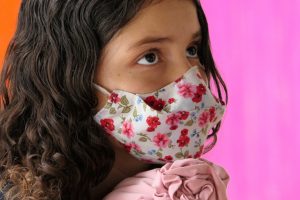
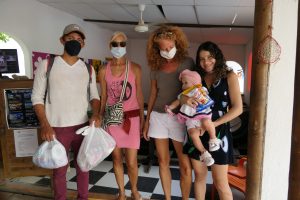
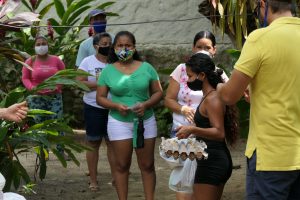
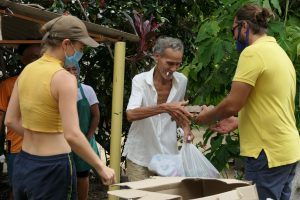
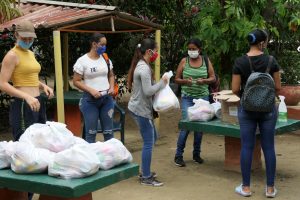
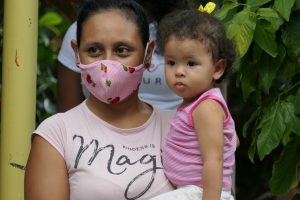
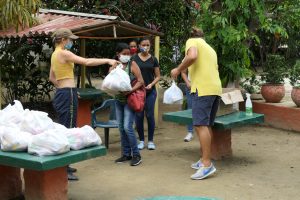
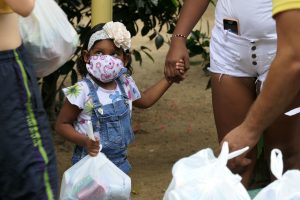
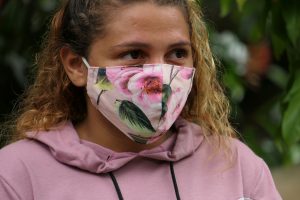
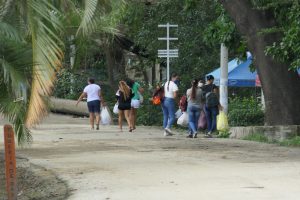
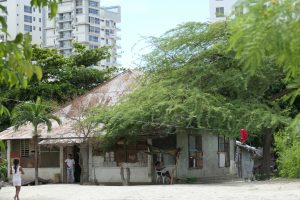
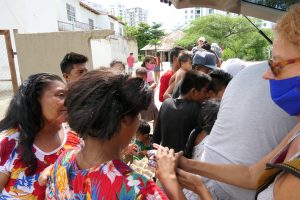
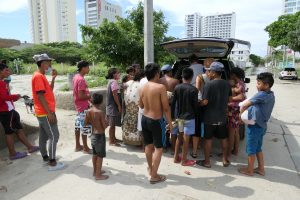
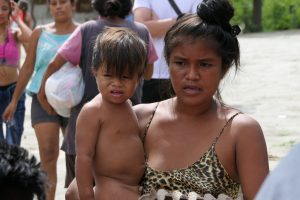
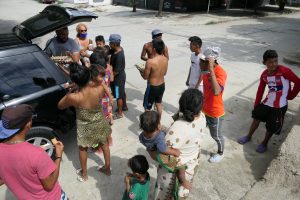
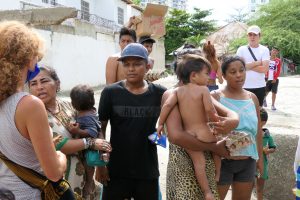
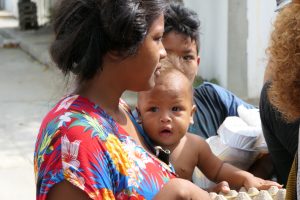
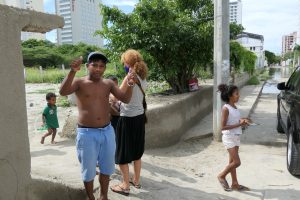
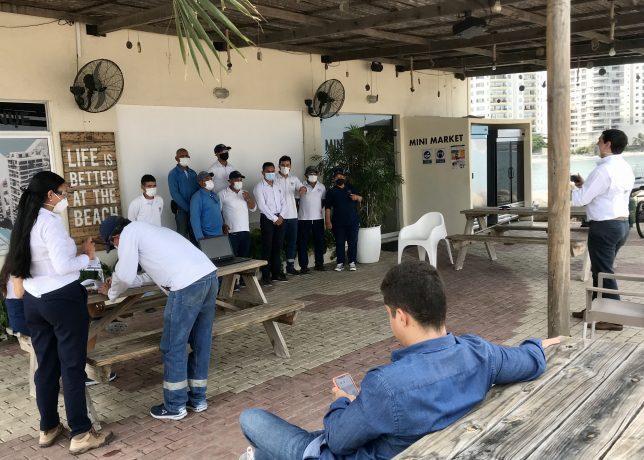
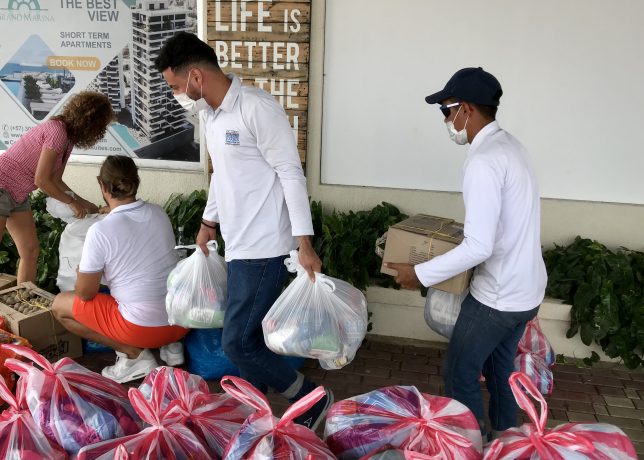
Hello,
We are really impressed by your generosity, kind heart and implication. Great work. How can we make a donation?
The S/V Y knot 1 family
Dear Caroline,
thanks a lot for your interest to support the people in Santa Marta.
On our website you find two ways to make a donation: https://sail.jungclaus.info/?page_id=1822
Best Regards Michael